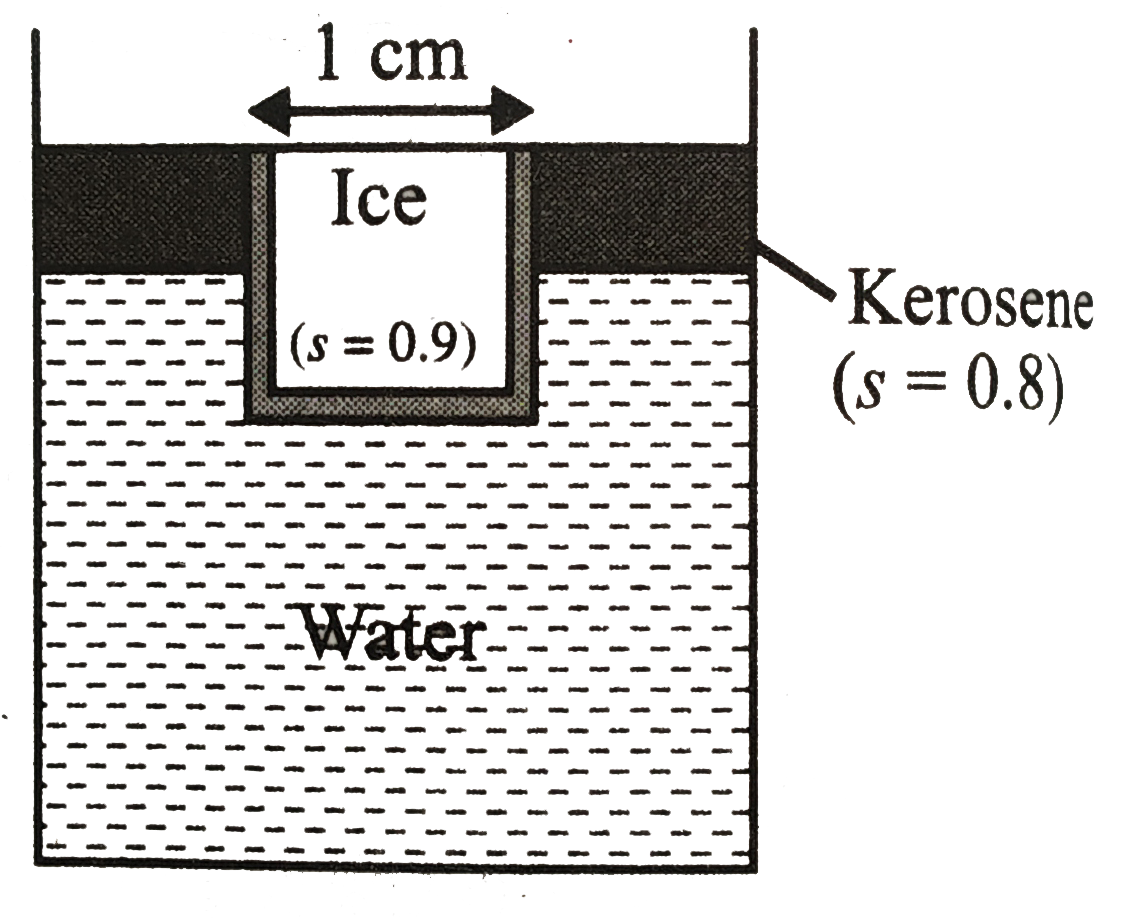Given reasons
(i) Lakes freeze form top towards bottom.
(ii) Ice floats on water.
The correct Answer is:N/a
Density of ice is less than that of liquid water. During severe winter, the temperature lake water keeps on decreasing. Since,cold water is heavir, therefore, it moves towards bottom of the lake and warm water form the bottom moves towards surface. This process contionues. The density of water is maximum at 277K.
Therefore, any futher decrease in temperature of the surface water will decrease in density. The temperature of surface water keeps on decreasing and ultimately if freezes.
Thhus, the ice layer at lower temperature floats over the water below it . Due to this, freezing of water into ice takes place continuously from top towards bottom.
(ii) density of ice is less than that of liquied water,so if floats over water.
Topper's Solved these Questions
- HYDROGENBOOK - NCERT EXEMPLAR ENGLISHCHAPTER - HYDROGENEXERCISE - MATCHING THE COLUMNS
4 Videos
- HYDROGENBOOK - NCERT EXEMPLAR ENGLISHCHAPTER - HYDROGENEXERCISE - ASSERTION AND REASON
2 Videos
- HYDROGENBOOK - NCERT EXEMPLAR ENGLISHCHAPTER - HYDROGENEXERCISE - LONG ANSWER TYPE QUESTIONS
8 Videos
- HYDROCARBONSBOOK - NCERT EXEMPLAR ENGLISHCHAPTER - HYDROCARBONSEXERCISE - Long Answer Type Questions
4 Videos
- ORGANIC CHEMISTRY : SOME BASIC PRINCIPLES AND TECHNIQUESBOOK - NCERT EXEMPLAR ENGLISHCHAPTER - ORGANIC CHEMISTRY : SOME BASIC PRINCIPLES AND TECHNIQUESEXERCISE - Long Answer type question
6 Videos
Similar Questions
Knowledge Check
Assertion : Ice cube floats on water.
Reason : Density of ice is less than that of water.AIf both assertion and reason are true and reason is the correct explanation of assertion.BIf both assertion and reason are true but reason is not the correct explanation of assertion.CIf assertion is true but reason is false.DIf both assertion and reason are false.
Give reasons : Ice floats on water.
View SolutionIf a bowl in formed from the same steel piece then it can float in water. Why?
View SolutionIf any explosion takes place at the bottom of a lake, what type of shock waves in water will take place ?
View SolutionIce formed over lakes has
View SolutionMost substances contract on freezing . However, water does not belong to this category. We know that water expands on freezing. Further , coefficient of volume expansion of water in the temperature range from 0∘C to 4∘C is negative and above 4∘C it is positive . This behaviour of water shapes the freezing of lakes as the atmospheric temperature goes down and it is still above 4∘C.
If the atmospheric temperature is below 0∘C and ice begins to form at t = 0 , thickness of ice sheet formed up to a time 't' will be directly proprotional to
View SolutionOn a winter day when the atmospheric temperature drops to −10∘C , ice forms on the surface of a lake. (a) Calculate the rate of increases of thickness of the ice when 10cm of ice is already formed. (b) Calculate the total time taken in forming 10cm of ice. Assume that the temperature of the entire water reaches 0∘C before the ice starts forming. Density of water =1000kgm−3 , latent heat of fusion of ice =3.36×105Jkg−1 and thermal conductivity of ice =1.7Wm−1C−1 . Neglect the expansion of water on freezing.
View SolutionAn ice cube of side 1cm is floating at the interface of kerosene and water in a beaker of base area 10cm2. The level of kerosene is just covering the top surface of the ice cube.
a. Find the depth of submergence in the kerosene and that in the water.
b. Find the change in the total level of the liquid when the whole ice melts into water.

View Solution
